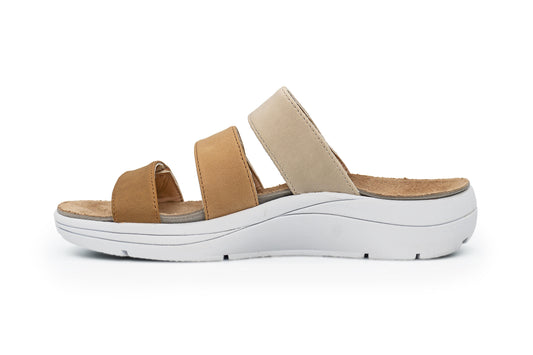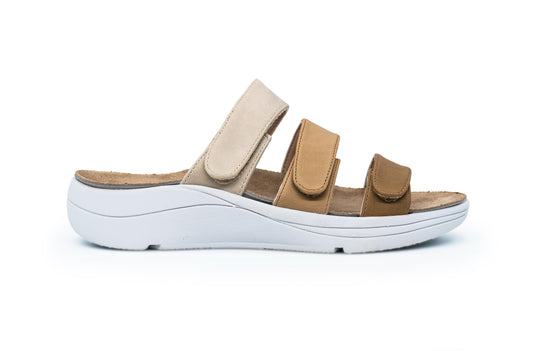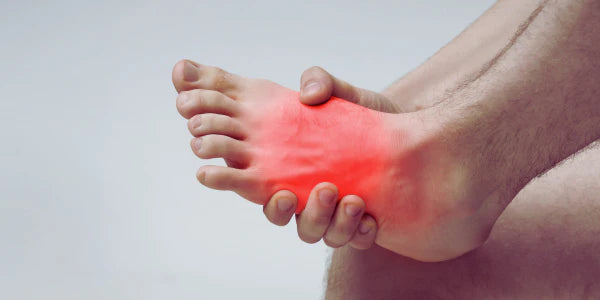Experiencing numbness in the feet can be unsettling and uncomfortable. You might notice that your heel feels numb, or perhaps you experience tingling or a "foot asleep" sensation. This article explores the common reasons for numbness in the feet, when it might be dangerous, and how to address it with the right footwear.
Common Causes of Foot Numbness
Numbness in the bottom of the feet can be caused by a variety of factors. Understanding these can help you determine whether you need medical attention or a change in footwear.
Peripheral Neuropathy
Peripheral neuropathy is one of the most common causes of foot numbness. This condition occurs when peripheral nerves are damaged. It can result in a loss of sensation, tingling, or even sharp pain. Diabetes is a leading cause of peripheral neuropathy, which is why diabetic footwear is often recommended.
Poor Circulation
Poor circulation can also lead to numbness and swelling in the feet. Conditions like peripheral artery disease (PAD) reduce blood flow to the extremities, causing numbness. If you notice swelling and numbness in your feet, it may indicate a circulatory issue that requires medical evaluation.
Nerve Compression
Another reason for numbness in the foot is nerve compression. This can occur from standing or sitting in the same position for too long, which can compress nerves and lead to that familiar "foot asleep" feeling. Ensuring you move regularly and wear supportive shoes can alleviate this issue.
Footwear
Footwear plays a significant role in foot health. Shoes that are too tight or lack support can contribute to numbness. Choosing comfortable shoes, particularly those with walk-right technology, can help reduce the risk of nerve compression and improve overall foot comfort.
Is Foot Numbness Dangerous?
While occasional numbness in the feet can be harmless, persistent or severe numbness should not be ignored. It can indicate underlying medical conditions such as diabetes, multiple sclerosis, or vitamin deficiencies. If you experience ongoing foot numbness, consult with a healthcare professional to determine the cause and appropriate treatment.
Choosing the Right Footwear
Selecting the right footwear is crucial in managing and preventing foot numbness. Here's what you should consider:
Diabetic Shoes
Diabetic shoes are specially designed to reduce pressure points and prevent skin breakdown. They provide extra depth and cushioning, making them ideal for individuals with neuropathy. These shoes can significantly reduce the risk of numbness and other foot complications in diabetic patients.
Supportive Shoes
Supportive shoes are essential for maintaining foot health. Look for shoes that offer proper arch support and cushioning. This can help distribute your weight evenly and reduce the risk of nerve compression.
Walking and Running Shoes
When selecting walking or running shoes, consider options with ample cushioning and support. Shoes designed for athletic activities often incorporate technology that enhances foot stability and reduces stress on the feet. This is particularly important for those who engage in regular exercise.
Neuropathy Shoes
For those experiencing neuropathy, specialised neuropathy shoes are available. These shoes often feature extra padding and a design that minimises friction and pressure on the feet. They can be an excellent choice for individuals seeking comfort and protection.
Practical Tips for Managing Foot Numbness
In addition to choosing the right shoes, here are some practical tips to help manage foot numbness:
-
Stay Active: Regular physical activity improves circulation and can prevent nerve compression.
-
Elevate Your Feet: If you experience swelling, elevating your feet can help reduce it and improve circulation.
-
Foot Exercises: Simple exercises like toe curls and ankle rotations can enhance flexibility and blood flow.
-
Frequent Breaks: Avoid sitting or standing for prolonged periods without moving. Take breaks to stretch and change positions.
-
Check Your Feet Daily: Especially important for diabetics, daily foot checks can help identify any changes or issues early.
When to Seek Medical Help
It's essential to seek medical advice if you experience:
-
Persistent numbness that doesn't improve with lifestyle changes
-
Numbness accompanied by pain, swelling, or weakness
-
Changes in foot shape or colour
-
Symptoms affecting your balance or ability to walk
Early intervention can prevent potential complications and improve your quality of life.
Conclusion
Numbness in the feet can be a sign of various conditions, ranging from minor issues like poor footwear to serious health concerns like diabetes. Understanding the causes and implementing practical solutions, such as choosing the right footwear and maintaining an active lifestyle, can help manage and prevent foot numbness. However, if symptoms persist, it's crucial to seek professional medical advice to address any underlying conditions.
By taking proactive steps and being mindful of your foot health, you can ensure comfort and mobility for years to come.








